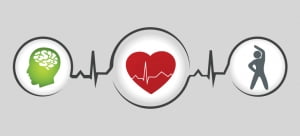While research into autism spectrum disorder mainly focusses on the young, it’s important to remember that the number of adults with autism spectrum disorder is also increasing
While the research and awareness of young people with autism spectrum disorder continue to increase around the 
With increasing numbers of adults diagnosed with ASD, the research into ASD has continued to remain at similar levels for adults. It’s important all levels of ASD are studied. Research into autism spectrum disorder is currently focused more on children and adolescents.
“When we were going into this study we thought that we might see a couple of things that were elevated … what we didn’t expect is that we would see either similar or higher prevalence of almost all things except for cancer and hypertension and alcohol abuse,” said Lauren Bishop-Fitzpatrick, lead author of the study. Researchers took advantage of a technique known as machine learning for the study. The machine learning is a form of artificial intelligence which analyzed data from the health records at Marshfield Clinic in Central Wisconsin.
“We’ve known for a long time that people on the spectrum have high rates of things like epilepsy and digestive problems,” Bishop-Fitzpatrick said. “But in this sample, we were able to see that they also had really high rates of cardiovascular problems, as well as motor problems, ear problems, and infections.” The researchers compared the health records of 91 people with autism against 6,000 people without autism from the same region. These numbers are a similar ratio to what the CDC uses for their autism estimates across the United States.
“This is the first study, that we know of at least, to look at the health histories of people on the
autism spectrum,” Bishop-Fitzpatrick said. “So, we had a lot of data to look at this sample of people.”





